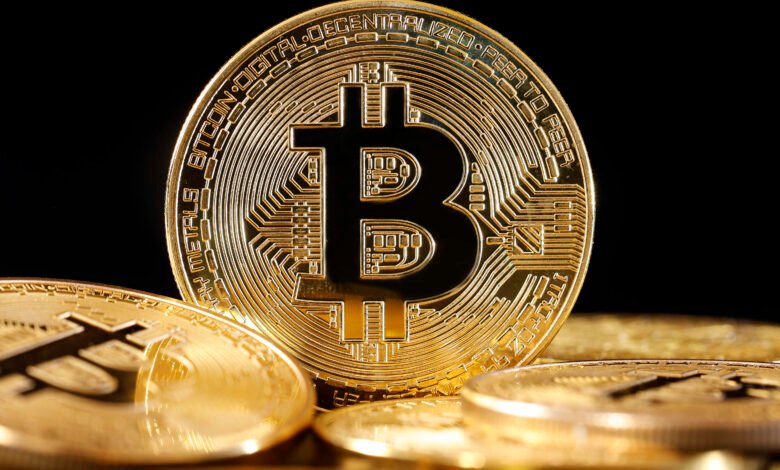Bitcoin, altcoins, meme coin differences explained

But before you consider investing in cryptocurrency, it’s important to understand the difference between meme coins, altcoins and bitcoin.
Bitcoin is the original cryptocurrency and the largest by market capitalization at over $1.3 trillion, according to CoinMarketCap. It was created by Satoshi Nakamoto, a person or group of people whose identity remains a mystery. Nakamoto envisioned bitcoin as an alternative version of virtual cash that wouldn’t rely on a government or financial institution, such as a bank, to function and facilitate payments.
Like many cryptocurrencies, bitcoin is powered by blockchain technology, which works as a digital, decentralized ledger that keeps track of transactions made within the network.
Bitcoin also has a built-in limited supply of 21 million coins. This means no new bitcoins will be issued after 21 million coins have been mined. The scarcity is on purpose; the supply limit ensures that bitcoin remains a scarce asset so that, theoretically, as demand increases and supply remains the same, bitcoin’s value increases as well.
Altcoins, also known as alternative coins, refers to any cryptocurrency that’s not bitcoin. Although some of these digital tokens may operate similarly to bitcoin, they are built on different blockchain networks.
There are thousands of altcoins, which are typically created with a specific purpose in mind. Take stablecoins, for example. A stablecoin is a type of altcoin that pegs its value to another asset, such as gold or the U.S. dollar, with the goal of stabilizing its price.
Outside of stablecoins, many altcoins derive their value from market demand and traders’ preferences. However, that can make them particularly vulnerable to rapid and unexpected changes in price, says James Royal, Bankrate’s principal investing and wealth management analyst.
“If demand dries up, you’ll be left with only worthless digital assets and a good story,” he tells CNBC Make It.
Additionally, with so many altcoins available, it’s important to be on the lookout for potential scams. One of the most common types of crypto investment scams encourages you to purchase a large amount of a given coin, then transfer it to the scammer’s wallet.
“Before you invest in crypto, search online for the name of the company or person and the cryptocurrency name, plus words like ‘review,’ ‘scam,’ or ‘complaint,'” the Federal Trade Commission says on its website.
Under the umbrella of altcoins are meme coins. These virtual tokens are usually created for fun and named after internet memes or pop culture references. And although every meme coin is an altcoin, every altcoin isn’t necessarily a meme coin.
Although all cryptocurrency carries risk, meme coins can be especially treacherous for traders, Royal says.
“Meme coins are among the riskiest of cryptocurrencies because they seem to emerge from nowhere and information about them can be sparse,” he says. “They’re expected to soar and plummet as the public sentiment shifts this way and that. Meme coins may capture the public’s fancy today and be gone tomorrow.”
Aside from stablecoins, most cryptocurrencies aren’t supported by an underlying asset such as gold, other commodities or fiat currencies. Many crypto coins are only worth what the next trader is willing to pay for them, which is why they’re considered highly volatile and subject to unpredictable price swings.
“While well-established cryptos such as bitcoin and ethereum may have traders’ sentiment in their favor now, they’re still ultimately driven only by sentiment,” Royal says. “If traders decide that those coins are no longer worthwhile, there’s no fundamental business there to support the coins’ price, as there is with stocks.”
Ultimately, Royal says to “avoid cryptocurrency entirely.” But if you’re interested in “trying your luck” in the crypto market, try a bitcoin exchange-traded fund, he says.
An ETF is a type of investment fund that aims to mimic and track the price movement of an asset or basket of assets. You would buy a bitcoin ETF via your brokerage account instead of purchasing and storing bitcoin yourself on a crypto exchange or bitcoin’s blockchain network.
“The annual fees are reasonable, cheaper in most cases than actually buying the crypto yourself, and you’re buying a coin that has the interest of institutional investors, so demand may remain robust,” Royal says. “You’ll also avoid the security, fraud and theft issues that have plagued cryptocurrency exchanges in the last few years, while paying lower fees.”
Want to be a successful, confident communicator? Take CNBC’s new online course Become an Effective Communicator: Master Public Speaking. We’ll teach you how to speak clearly and confidently, calm your nerves, what to say and not say, and body language techniques to make a great first impression. Preregister today and use code EARLYBIRD for an introductory discount of 30% off through July 10, 2024.
Plus, sign up for CNBC Make It’s newsletter to get tips and tricks for success at work, with money and in life.
Source link





